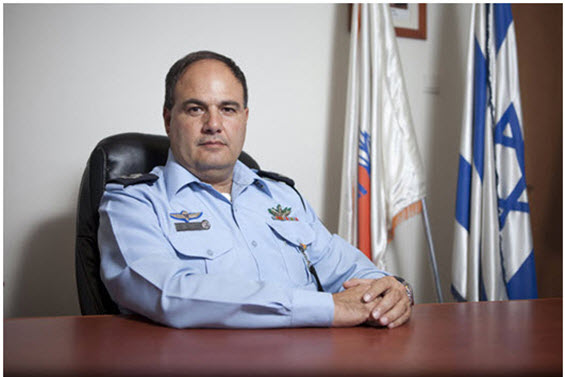When the NGO Adalah learned from reports in the media on June 23 that the Israeli Public Security Minister, Gilad Erdan, was about to appoint Tel Aviv Police Chief Bentzi Sau to the position of Acting Chief of the Israeli Police, creating the possibility that this appointment would eventually become permanent, the organization was not slow to react: “Bentzi Sau is a criminal whose only place is in prison, behind bars. He is responsible for the killing of two Palestinian Arab citizens of Israel, Mohammed Ahmed Jabarin and Ahmad Siam, as well as the murder of Musleh Abu Jarad, from Gaza, who was shot by snipers. According to the Or Commission, Bentzi Sau bears responsibility for the three killings in the Wadi Ara area. The Border Police in the area were under his command in October 2000.”
Adalah sent an urgent letter to Attorney General Yehuda Weinstein and to Minister Erdan demanding that Sau not be appointed as Chief of Police, even for a limited period. Adalah attorneys Hassan Jabareen and Sawsan Zaher wrote in the letter that, “as a legal center that assisted the bereaved families who lost their sons in October 2000, and which also represents the Arab leadership, we can assert that there is a clear consensus against the promotion of Bentzi Sau. Sau holds the lowest level of confidence among the Arab public.”
According to the Or Commission of Inquiry, which investigated the October 2000 events and issued its report in 2003: Maj. Gen. Sau, who served as commander of the Northern District of the Border Police and commander of the Wadi Ara region during the events of October 2000, commanded the forces during an confrontation which lasted for hours at the Umm al-Fahem junction in a manner unjustified under the circumstances and against district police policy as it had been determined that morning. In the confrontation which resulted from the action commanded by Maj. Gen. Sau, a police contingent entered Umm al-Fahem, against directives. Numerous rubber-coated and live bullets were fired, causing the death of two civilians and numerous injuries.
While the Commission determined that Maj. Gen. Sau was not personally responsible for the serious consequences of the actions of individual police personnel in Umm al-Fahem, it also found that on Oct. 2, 2000, Maj. Gen. Sau was directly responsible for the unjustified opening of fire by snipers on stone throwers at the Umm al-Fahem junction. The commission also further found substantial failures in his functioning. The commission recommended that Sau not be promoted in rank or position for a period of four years from the day of publication of its report.
In 2006, then-Minister of Public Security, Avi Dichter, promoted Sau to be the Head of the Minister’s Operational Staff Unit. In response, Adalah petitioned the Israeli Supreme Court against the promotion. The Supreme Court ruled, in a landmark decision, that Sau’s promotion must be cancelled as it contradicted the Or Commission’s recommendations, and that Sau should resign.
In Adalah’s view: “The Or Commission spoke clearly, when it stated that the Israeli police deal with Arab citizens as enemies. The Ministry of Justice’s Police Investigation Unit (“Mahash”) did not recommend the issuance of any criminal indictments against police officers or commanders, and the police continued to rely on these officials to serve in leadership positions. The Attorney General closed all of the investigation files in 2008. The police are still treating Arab citizens violently, which has led to the killing of dozens of youth even after October 2000 and the Or Commission’s findings. Official statistics obtained by Adalah found that between 2011 and 2013, 97.3% of the investigation files against the police were closed either without investigation or after investigation. Protestors participating in the Days of Rage protests against the Prawer Plan, against the killing of teenager Mohammed Abu Khdeir, and against the War on Gaza in the Gaza Strip, all experienced a violent and brutal reaction by the police. They did not witness any change in how the police deals with Arab citizens, despite the October 2000 experience.” According to Hadash: “The promotion of Bentzi Sau is an aggressive message. It puts Arab citizens of Israel on notice that the history of violence against them will continue.”



